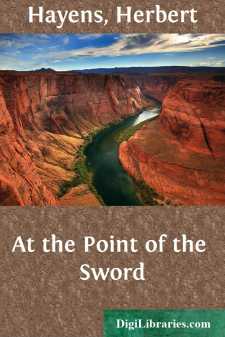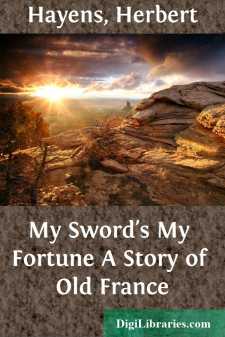Categories
- Antiques & Collectibles 13
- Architecture 36
- Art 48
- Bibles 22
- Biography & Autobiography 813
- Body, Mind & Spirit 142
- Business & Economics 28
- Children's Books 15
- Children's Fiction 12
- Computers 4
- Cooking 94
- Crafts & Hobbies 4
- Drama 346
- Education 46
- Family & Relationships 57
- Fiction 11828
- Games 19
- Gardening 17
- Health & Fitness 34
- History 1377
- House & Home 1
- Humor 147
- Juvenile Fiction 1873
- Juvenile Nonfiction 202
- Language Arts & Disciplines 88
- Law 16
- Literary Collections 686
- Literary Criticism 179
- Mathematics 13
- Medical 41
- Music 40
- Nature 179
- Non-Classifiable 1768
- Performing Arts 7
- Periodicals 1453
- Philosophy 64
- Photography 2
- Poetry 896
- Political Science 203
- Psychology 42
- Reference 154
- Religion 513
- Science 126
- Self-Help 84
- Social Science 81
- Sports & Recreation 34
- Study Aids 3
- Technology & Engineering 59
- Transportation 23
- Travel 463
- True Crime 29
At the Point of the Sword
by: Herbert Hayens
Categories:
Description:
Excerpt
A BIRTHDAY EVE.
In spite of my English name—Jack Crawford—and my English blood, I have never set foot on that famous little island in the North Sea, and now it is quite unlikely that I ever shall do so.
I was born in Peru, on the outskirts of beautiful Lima, where, until the year 1819, on the very eve of my fourteenth birthday, the days of my childhood were passed.
I expect you know that in ancient days Peru was called the "Land of the Sun," because the sun was worshipped by the natives. Their great city was Cuzco, built, it is said, in 1043 A.D., by Manco Capac, the first of the Incas, or Emperors of Peru.
The natives believed Manco to be a child of the sun; but I have heard an old story that his father was a shipwrecked Englishman, who married the daughter of a Peruvian chief. I do not think this tale correct, but it is full of interest.
Most of the Incas ruled very wisely, and the remains of palaces, temples, and aqueducts show that the people were highly civilized; but in 1534 the Spaniards, under Pizarro, invaded the country, and swept away the glorious empire of the Incas.
After that Peru became a part of Spanish America, and Pizarro founded the city of Lima, which he made the capital.
My father, who settled in the country when quite a young man, married a Peruvian lady of wealthy and influential family. The estate near Lima formed part of her marriage portion, and a beautiful place it was, with a fine park, and a lake which served me both for boating and bathing. I had several friends, chiefly Spaniards, but two English boys, whose fathers were merchants in Callao, often visited me, and many a pleasant game we had together.
At this time Peru was a Spanish colony, but some people, among whom was my father, wanted to make it an independent country, having its own ruler. Being still a boy, I did not hear much of these things, though, from certain talk, I understood that the country was in a most unsettled state, and that the Spanish governor had thrown many good men into prison for urging the people to free themselves.
One evening, in March 1819, I was busy in my workshop painting a small boat. My father had been absent for nearly a week, but he had promised to return for my birthday, and every moment I expected to see him crossing the courtyard.
Presently, hearing old Antonio unfasten the wicket-gate, I put down my brush, wiped my hands, and ran out joyously.
The happy welcome died on my lips. It was not my father who had entered, but Rosa Montilla, the young daughter of a famous Spanish officer. She was nearly a year younger than myself, and a frequent visitor at our house. Often we had gone together for a row on the lake, or for a gallop on our ponies round the park.
She was very pretty, with deep blue eyes and fair hair, quite unlike most Spanish girls, and generally full of fun and good spirits. Now, however, she was very pale and looked frightened. I noticed, too, that she had no covering on her head or shoulders, and that she had not changed the thin slippers worn in the house....



